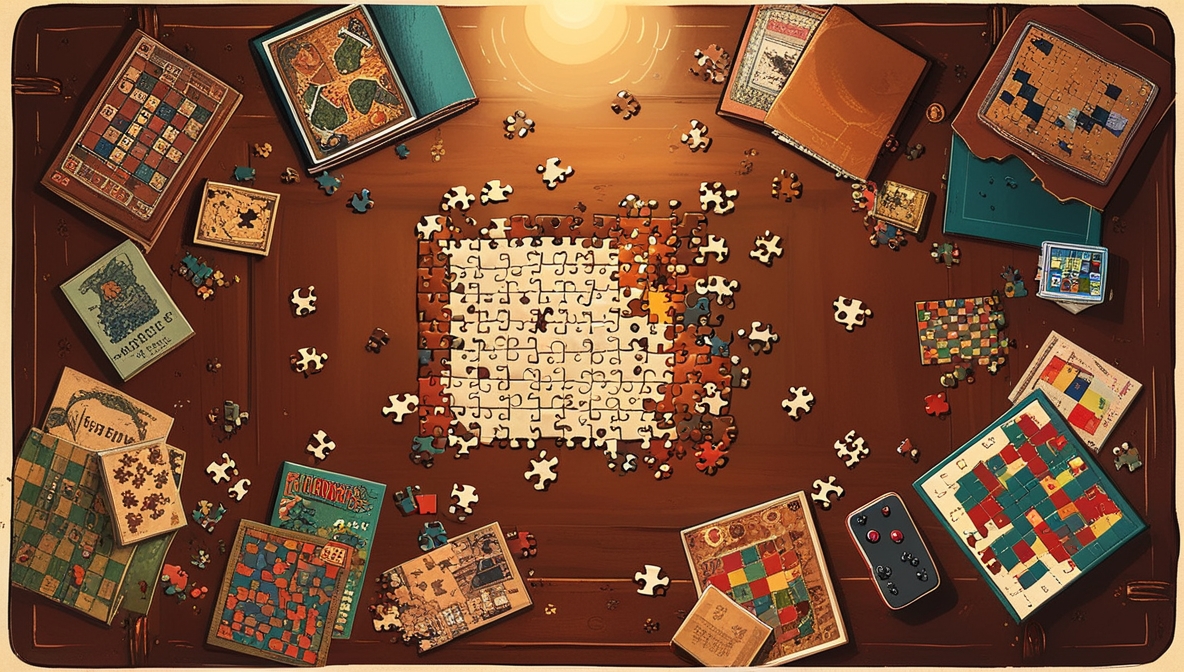The charm of classic puzzle games lies in their simplicity and universality. While modern gaming trends focus on graphics and complex mechanics, these iconic games tap into something deeper—offering a pure, satisfying mental challenge.
The Power of Simplicity in Game Design
Puzzle games often succeed because of their straightforward mechanics. They don’t overwhelm players with instructions or features. Instead, they rely on core principles:
- Accessibility: Anyone can start playing without prior knowledge or skill.
- Quick Sessions: Players can enjoy them in short bursts or longer sessions, adapting to different schedules.
- Minimal Learning Curve: Clear rules mean players can jump straight into the action.
This focus on simplicity keeps the experience stress-free, letting players focus solely on solving problems.
The Brain’s Love for Patterns
Human brains are naturally wired to recognize and solve patterns. Puzzle games offer a satisfying challenge, stimulating cognitive functions and releasing dopamine when goals are achieved. This reward system keeps players returning for more. Examples of such patterns include:
- Tile Matching: Organizing or aligning elements to achieve a goal.
- Pathfinding: Strategizing the shortest or most efficient route.
- Logic Progression: Breaking problems into smaller, solvable steps.
These mechanics tap into fundamental problem-solving instincts, making the experience universally engaging. Games like the 2048 game challenge players to think critically and strategically as they arrange tiles to reach higher numbers, offering a stimulating mental workout
Nostalgia and the Comfort of Familiarity
Many puzzle games carry a sense of nostalgia, taking players back to simpler times when gaming was a casual escape. The interface, sounds, and pacing often evoke memories tied to the early days of computers and mobile phones. This connection to the past enhances their appeal, as players often enjoy revisiting what once brought them joy. Playing these classics can also become a hobby for personal fulfillment, offering a rewarding sense of achievement tied to cherished experiences.
Key Nostalgia Triggers
- Retro Graphics: Simple, pixelated designs that feel iconic.
- Sound Effects: Familiar chimes or beeps that evoke memories.
- Universal Popularity: Games that were installed on nearly every device.
These triggers allow players to reconnect with moments that feel timeless, reinforcing the emotional connection.
Stress Relief Through Focus
Puzzle games are inherently relaxing because they focus the mind. They require concentration, allowing players to momentarily block out external distractions. This meditative quality makes them an effective tool for stress management. The repetitive actions and rewarding progress foster a sense of control and accomplishment.
Benefits for Mental Health
- Mindfulness: Encouraging players to focus on the present.
- Cognitive Training: Enhancing problem-solving and memory skills.
- Low Stakes: Removing pressure from outcomes, emphasizing enjoyment.
Playing puzzle games is a simple way to boost brain health through regular mental exercise, improving memory and cognitive agility over time. By prioritizing engagement over competition, these games provide a therapeutic outlet.
The Balance of Challenge and Reward
The best puzzle games strike a perfect balance between difficulty and satisfaction. Easy enough to understand yet challenging enough to solve, they encourage players to improve their skills over time. This balance creates a compelling gameplay loop that never feels frustrating or tedious.
Elements of a Perfect Puzzle Game
- Incremental Challenges: Gradual difficulty progression keeps the player motivated.
- Clear Objectives: Defined goals guide players through levels.
- Replayability: Endless combinations or randomization maintain novelty.
This design philosophy keeps games timeless, appealing across generations and demographics.
The Universal Appeal of Strategy
These games transcend cultural and technological barriers. They don’t rely on language, storylines, or trends. Instead, they engage players with universally understood principles. This universal approach ensures their relevance long after other games lose popularity.
Examples of Universally Appealing Mechanics
- Spatial Awareness: Understanding placement and arrangement.
- Cause and Effect: Observing how actions influence outcomes.
- Efficiency: Maximizing results with limited resources.
These elements speak to players from all walks of life, making the genre inclusive and enduring.
Adapting to New Platforms
Classic puzzle games continue to thrive because they adapt well to modern platforms. Whether through mobile apps, web versions, or touch-screen interfaces, their simple mechanics translate seamlessly. This adaptability ensures that these games remain accessible to new generations while staying familiar to seasoned players.
How Modern Platforms Enhance the Experience
- Touch Controls: Providing intuitive gameplay on phones and tablets.
- Cloud Saving: Allowing progress to sync across devices.
- Online Sharing: Enabling players to compete or collaborate globally.
These enhancements expand the games’ reach without compromising their core simplicity.
Lessons for Game Designers
Modern developers can learn much from the enduring appeal of puzzle games. Their success lies in prioritizing player engagement over complexity, proving that less can often be more. Aspiring game creators should focus on:
- Streamlined Mechanics: Removing unnecessary features for a clean, focused experience.
- Replay Value: Designing levels or elements that offer fresh challenges over time.
- Timeless Design: Avoiding trends that might date the game too quickly.
By following these principles, developers can create experiences that stand the test of time.
Why We Keep Coming Back
Classic puzzle games remain popular because they fulfill basic human desires: to solve problems, achieve goals, and enjoy moments of calm focus. Their simplicity, nostalgia, and universal appeal ensure they stay relevant, even as technology and trends evolve. These games remind us that sometimes, the most meaningful experiences are the simplest.
